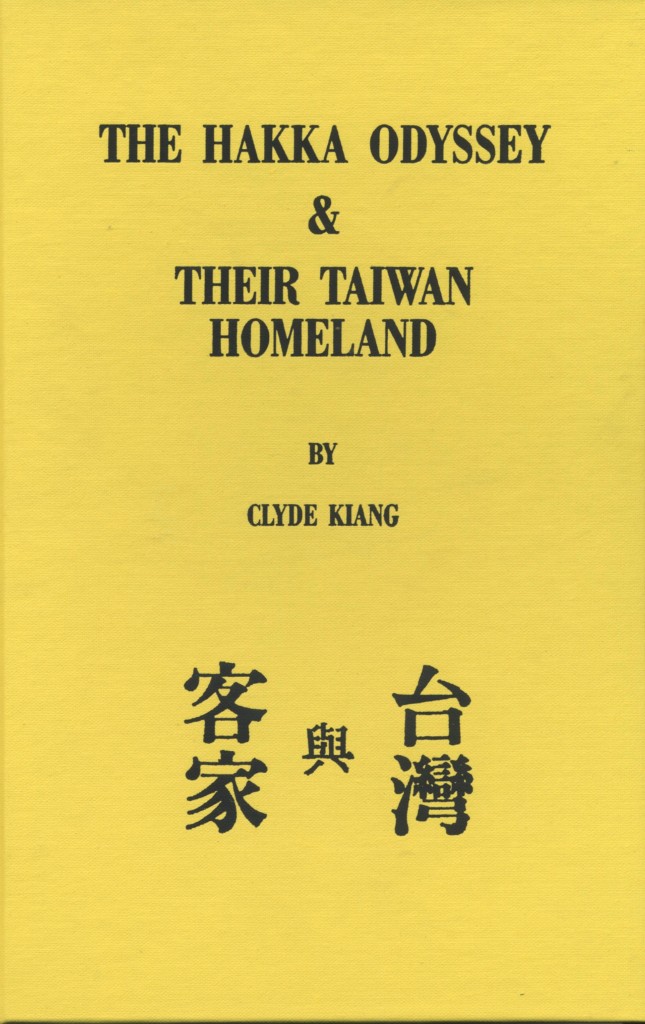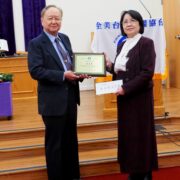THE HAKKA ODYSSEY & THEIR TAIWAN HOMELAND 客家與台灣
By Clyde Kiang
PREFACE
This book is in some respects an extension of The Hakka Search for a Homeland that I wrote in 1991. This new volume provides a conceptual framework for identifying and analyzing the Hakka Taiwanese, along with defining Hakka national interests in Taiwan.
No one believes that we can satisfy the story of Hakkas by studying only the written records of the privileged and the educated. The overemphasis on the official history by the Chinese elite has led to grave distortions in our knowledge of Hakka,s origins. The misinformation is caused either by misstatements of facts or suppression of truth by Chinese official historians. Archaeologists or ethnologists had relatively little to say on the matter. Yet it seems a question that is still worth trying to investigate and answer. In view of the new information about the migration of north-central Asians that was being produced by the efforts of Japanese scientists, it is high time for us to ask again where the Hakka people had come from.
The material of this book came from a variety of sources. What I have presented in this book are the collective resources of information that some other people and I have found helpful in unraveling the puzzles of the origins of the Hakka people and learning not only to understand this ethnic minority but also to look at their plight, identity, and characters, adding to what we already know.
Thus this book points out the course of their original migration from Central Asia through North and South China to everywhere around the globe. Moreover, the book expounds the role of genetic influence on their behavior. I have tried to present a perspective on the Hakka experience in Taiwan by employing those insights of historical, cultural, and sociopolitical learning of which I have been a direct beneficiary. At the same time, the writing of this book was a personal statement inseparable from the writer’s background as a Taiwanese Hakka as well as American Hakka. So this book was written essentially as an attempt to identify ethnic background of the Hakka people, to depict their plight as a minority, and to narrate their aspiration for a democracy in Taiwan.
In addition to ongoing observations and readings, this book benefits greatly from personal interviews and first-hand experience. In gathering information for writing this book, I have drawn material from a number of different sources in Chinese, English, Japanese, and others. In spite of the expert help and advice I have received, I am aware of my obligations in presenting the material fairly and correctly. Of course, final responsibility for the accuracy of the information and for the interpretation of the facts and events is mine alone. So let this book be our new lead on an academic and scientific journey through the everchanging world of the Mongoloid migration, especially the Hakka people. I hope that the reader will remain excited by learning to understand how the Hakkas have arrived at where they are today, and he will engage in continual research or speculation about where it may be leading to draw a conclusion or subsequent development.
Finally, a note on the use of the terms China and Chinese seems appropriate. Throughout the book, the term China is often used to imply a geographic region in Asia, not a nationality. Likewise, the term Chinese signifies the peoples from that region to include the majority Chinese people as well as other ethnic minority groups. They are not a homogenous people. However, the term Chinese may imply that majority people in China, and is mainly a cultural designation that encompasses peoples of different ethnic and linguistic backgrounds. The definition of these terms in general is similar to that of Europe or European in the west and that of America or American in the United States.
This book is dedicated to the Hakka people, to all who are working for independence and democratization of Taiwan, and to my family: May, Justin, and Kylene, with the hope that the final decade of the twentieth century will bring a just solution to the long-standing struggle for democracy in Taiwan.
Posted in 2015/01






